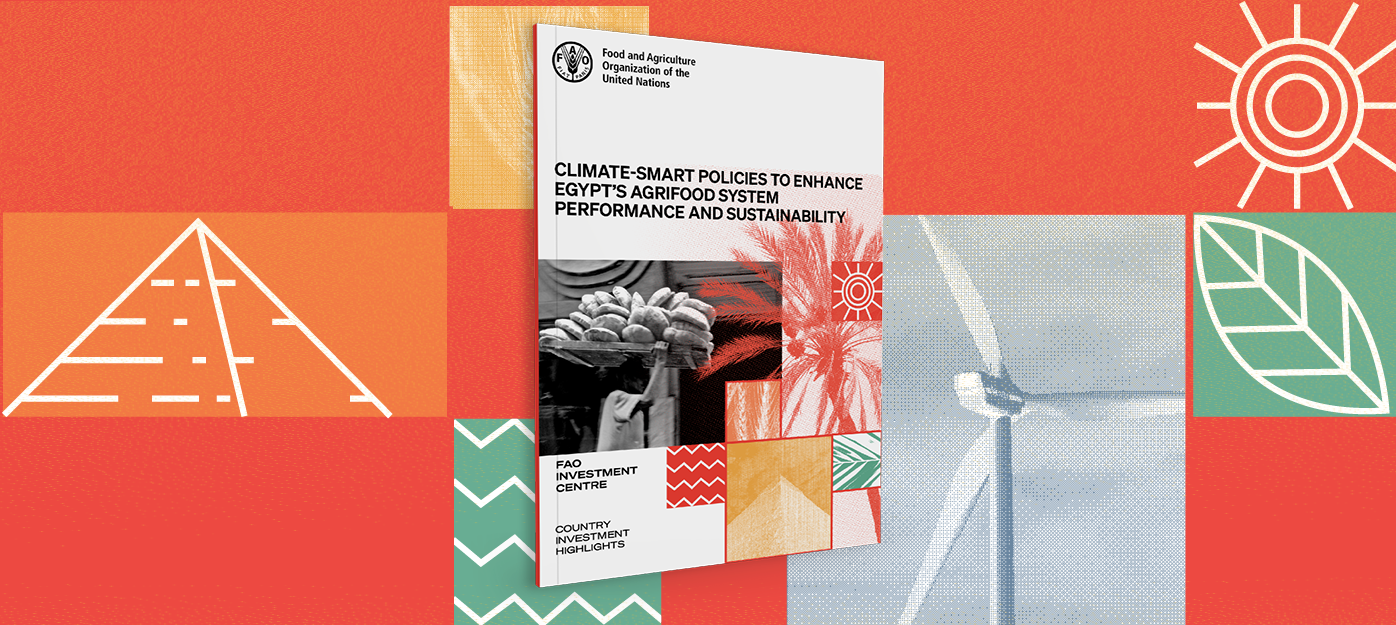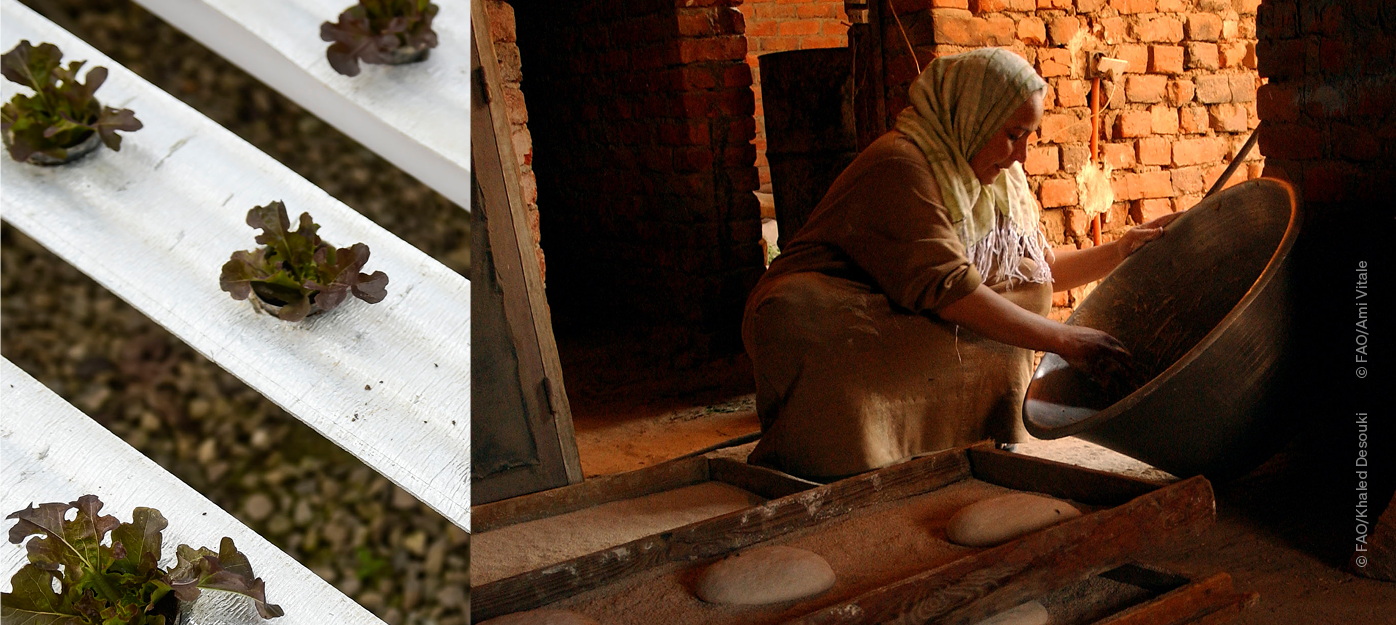Redefining resilience in Egypt's agrifood future

A new study from the Food and Agriculture Organization of the United Nations (FAO) Investment Centre in collaboration with the World Bank and launched during a virtual event today, unveils a variety of climate-smart policy actions and investment options set to shape Egypt's agrifood system's future.
This study launches in the wake of the COP28 UAE Declaration on Sustainable Agriculture, Resilient Food Systems, and Climate Action, where Egypt was one of 134 countries committing to building sustainable agriculture and food systems fit for the future.
“At COP28, Egypt and other countries endorsed the declaration to scale-up access to finance to adapt and transform agriculture and food systems to respond to climate change,” said Mohamed Manssouri, Director of the FAO Investment Centre. “This new study shines a light on Egypt’s commitment to climate-smart agriculture, by accelerating investment and innovation, promoting ecosystem resilience and improving livelihoods – including for rural communities and smallholder farmers.”

Sustaining resilience against the odds
Egypt’s agrifood system has weathered economic shifts and societal transformations. Unlike other middle-income countries, its agriculture sector has held on to its GDP and employment shares, driving economic growth and diversification.
In 2020, it accounted for more than 24 percent to Egypt's GDP, employing over 20 percent of the population. Foreign exchange from agrifood exports also saw a promising uptick, soaring to USD 2.47 billion in 2021–2022.
However, there's a significant challenge downstream, where less than 10 percent of crops undergo processing, and a massive 68 percent of agrifood system jobs remain farm-related.
The landscape is further complicated by Egypt's burgeoning population, which has skyrocketed from 56 million in 1990 to nearly 104 million in 2021. Evolving consumer preferences now favour meat, dairy, oilseeds, and sugar. Despite progress in improving food security, undernourishment rose to more than 5 percent in 2019–2021.
But it's not just population pressures. The relentless expansion of urban centres poses a considerable challenge. In the past two decades, urban sprawl has swallowed up over 75 000 hectares of fertile land.
As climate change causes temperatures to rise and rainfall to diminish, Egypt faces substantial threats to its food crop yields by 2050. Agriculture is expected to be hit hard, with maize, sugar crops, and fruits and vegetables likely facing declines of up to 19 percent, considering current practices.

Pivot to climate-smart policies and investments
To combat these challenges, Egypt's Government has embarked on a transformative path, shifting its focus toward sustainable production and high-value exports.
This transition aligns with the Sustainable Agricultural Development Strategy and the National Structural Reform Programme 2021–2024 – backed up by increased public investment in crucial areas like research and development, extension, and digitalization.
The study focusses on four vital subsectors – dairy, dates, maize and wheat – which play crucial roles in terms of food security, import dependence, and employment.
At its core is the adoption of climate-smart agriculture (CSA) technologies, promoting high-value subsectors, enhancing resource efficiency, and addressing adoption barriers.
“We highlight how investing in these game-changing technologies can promise 'triple-wins' – they can boost productivity, strengthen resilience against climate change and reduce its impact.” said lead author Jozimo Santos Rocha, Officer-in-Charge of Asia and the Pacific Service, Senior Agribusiness Officer, FAO Investment Centre.
With investments in CSA, the study reveals, Egypt can dramatically increase efficiency in land, water and energy usage. Not only will this lead to job creation, but it will also enhance productivity and elevate food and nutrition security.

Accelerating the adoption of CSA
Despite their potential, Egypt faces roadblocks in embracing climate-smart technologies. High initial costs and difficulties in accessing affordable financing are some of the barriers particularly affecting smallholder farmers.
Crucially, Egypt's small-scale farming and land fragmentation make it challenging for many to adopt these technologies. Overcoming these hurdles means continuing to help smallholders access markets and financial services.
Focusing on high-value subsectors and increasing inclusive access to matching grants and credit guarantees is paramount to accelerate the adoption of climate-smart agriculture technologies.
With climate-smart policies and sustainable investments, Egypt can safeguard its food supply, fortify its economy and enable farmers to generate a greener, more resilient future.
